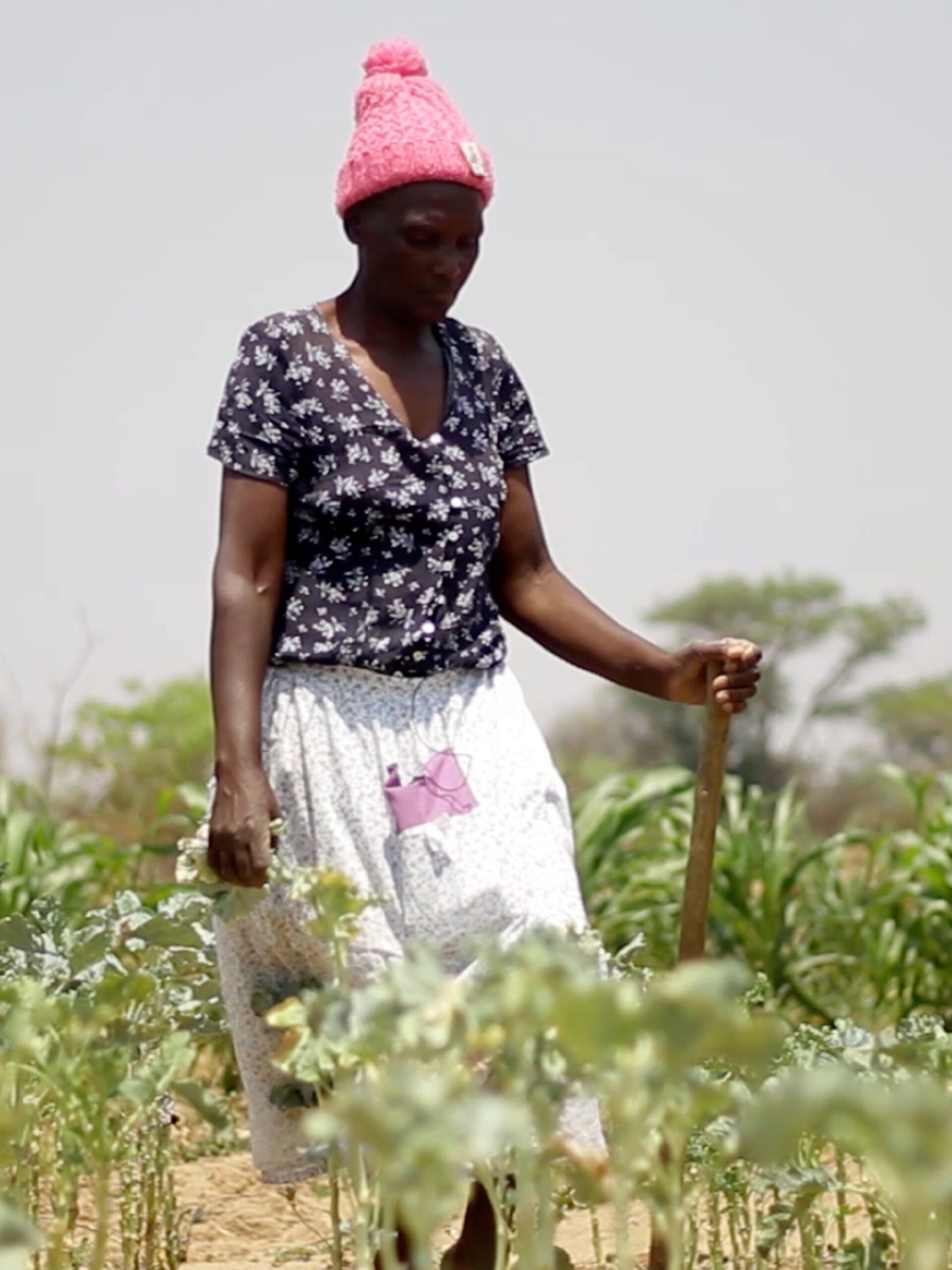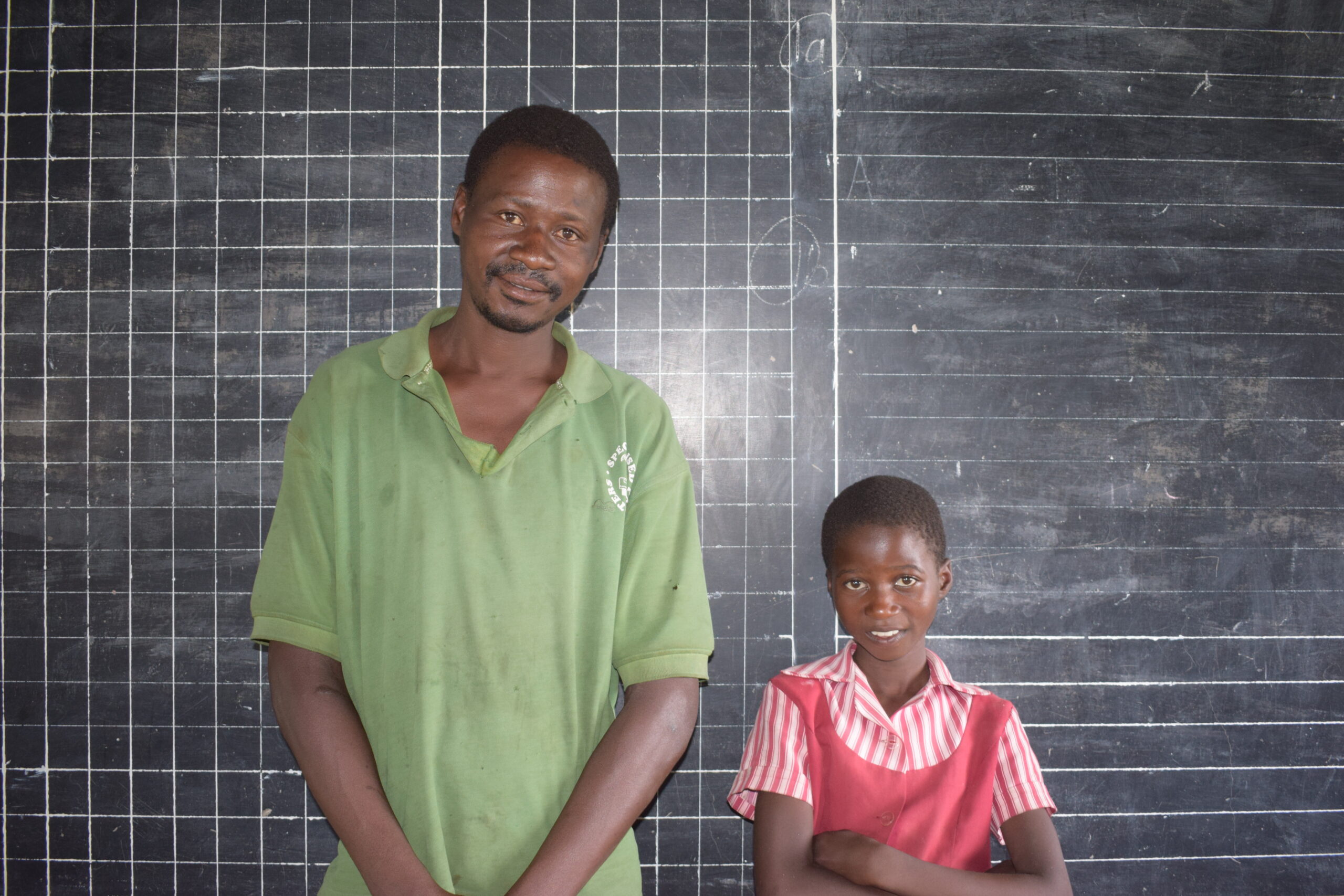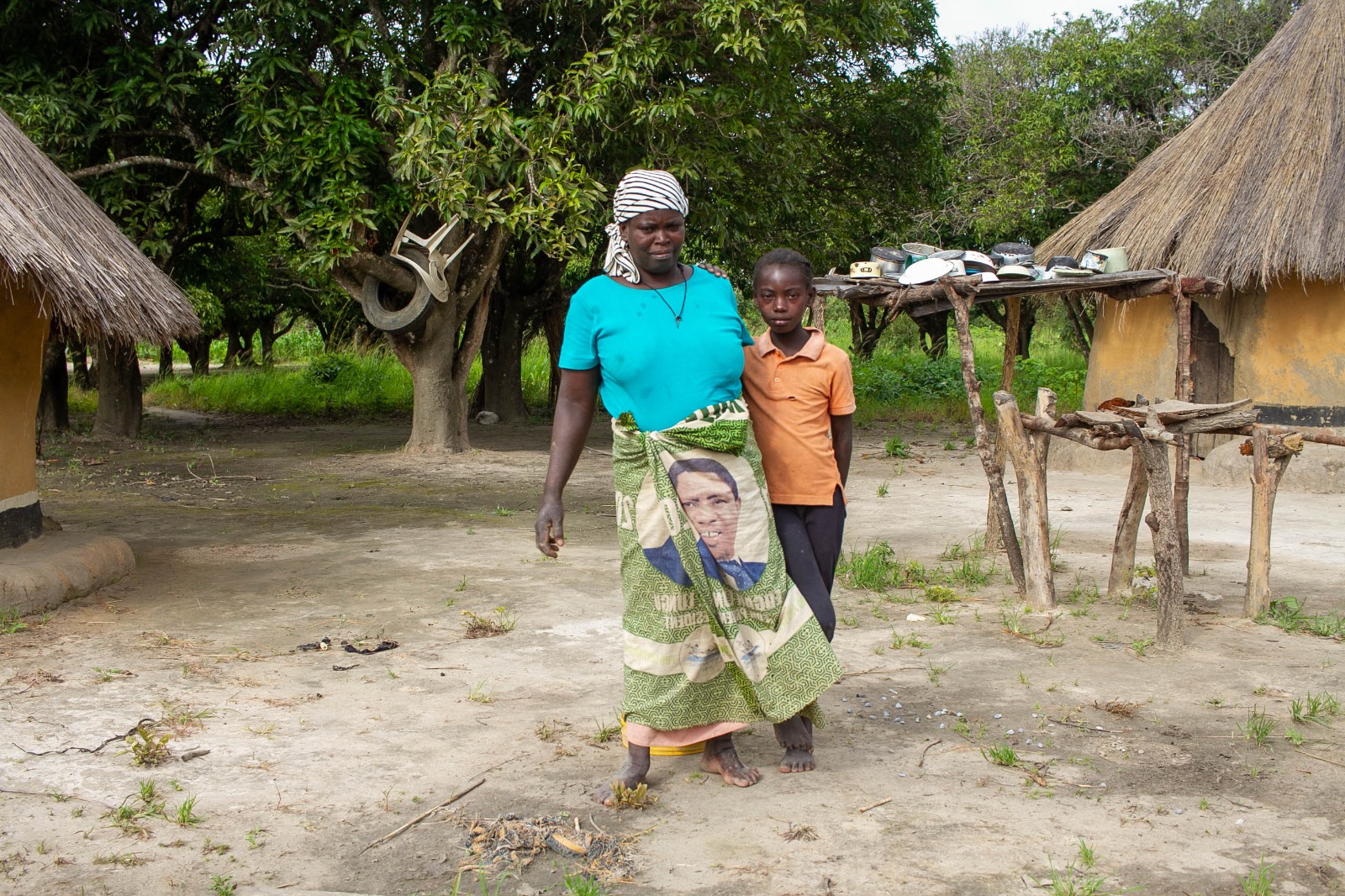Establishing and Supporting Family Sustainable Projects.
We fully support the small projects that our beneficiaries’ caregivers wish to pursue, in order to become sustainable, receive an income and help pull their families out of poverty.
We believe that by supporting and guiding our beneficiaries’ caregivers through their small projects, it will help them become more sustainable and be able to provide more for their entire family, slowly bringing them out of poverty over time.
Whether it is to set up a farming project that grows vegetables, or a poultry project that rears chickens or cattle, or a sewing project where clothes are made to sell – we fully support our beneficiaries’ caregivers ideas, and offer both financial support and guidance to them, to ensure that their proposed project is a success.

Gire’s Grandmother working on her fields where she grows various vegetable crops.
Gire is one of our beneficiary’s from Beatrice in Zimbabwe. Sadly both her parents passed away when she was young and she had no one else to support her. A nearby neighbour, an elderly woman whose husband had recently passed away, decided to adopt orphaned children in her local area and support them. When Gire joined the S.H.E Programme in 2022, her caregiver was looking after sixteen young children. After meeting this elderly woman and learning more about her background, we found out that she has begun a farming project, where she grew various vegetables to sell to earn an income to be able to support her large family.
Gire’s caregiver mentioned to us that the previous harvest season, she was able to accumulate five tonnes of maize, by herself with no other help, that she managed to sell, which assisted her in receiving enough funds to start building her new house that will be able to accommodate her entire family. We were truly inspired by her story and seeing her determination to provide the world for her family made us decide to fully support her with her farming efforts and ensure that the is fully sustained.
After chatting further to Gire’s caregiver, she told us that her only source of water for her vegetables, was provided to her by a nearby well, as there were no nearby dams or rivers that should could use to collect water. Unfortunately, this well had dried up and she requested for support from the Catalyst Foundation to help her dig a deeper well, in order for her to be fully sustainable and be able to continue her farming project. We were able to go above and beyond and offered her support that will ensure that she will never have to worry about running out of water again.
Since offering this support, Nyasha’s caregiver’s farming efforts have increased greatly and she is now able to continue building her new house.

Anaishe standing next to her father.
Anaishe is one of our beneficiary’s from Beatrice in Zimbabwe. When she was young, her parents separated due to her father being an aggressive alcoholic. Anaishe and her siblings chose to live with her mother after her parents’ separation, as she did not want to continue being abused by her father when he had too much to drink. Sadly, Anaishe’s mother passed away a few years later, which was really hard for her as she meant everything to Anaishe. After her mother’s passing, her father came back into her life and decided to seek help for his alcoholism, in order for him to be the role model that she needed. He successfully managed to become sober and they worked really hard to repair their relationship, as father and daughter.
Before joining the S.H.E Programme in 2022, Anaishe faced many barriers that prevented her from going to school. Her family’s financial situation was incredibly unstable. They were only able to afford to eat one daily meal, they were unable to pay for Anaishe’s school fees, uniforms and stationery, and for her medical treatment, as she suffered from extremely painful migraines. Through our holistic support, we were able to remove all of Anaishe’s barriers, allowing her to go back to school and continue with her education.
In order for Anaishe’s father to earn an income, he decided to start a farming project where he planned to grow maize, and sell it to nearby community members. Unfortunately, he was unable to progress very far, as his financial instability worked against his vision. Anaishe’s father seeks assistance to purchase farming equipment and seed, which will enable him to revive his farming project, and be able to provide for Anaishe and her siblings.

Beverly, sitting with her mother at their home in Zambia.
Beverly is one of our beneficiary’s from Chibombo in Zambia. She comes from a family that is extremely financially unstable, and this worsened a few years ago, when Beverly’s father abandoned her family because her mother was disabled. With her father being the only family member to have been bringing in an income at the time, when he left, it was devasting for the family and Beverley decided to assist her mother, by seeking various piece jobs to earn some money for them to survive. This unfortunately put a strain on Beverly and she was unable to attend school daily.
Only when Beverly did not have any jobs for her to do, she would then go back to school. Despite her missing many days of school, she was able to catch up on her school work, which was remarkable. If Beverly needed to purchase a new pair of school shoes, or a pen, she would then stop going to school, look for a few piece jobs to raise the amount of money that she needed, and once she raised enough, she would purchase the items of need and then return back to school. This determination to assist her family at such a young age and still try to remain at school is what qualified her to become part of the S.H.E Programme. Now that they receives our holistic support that has removed all the barriers affecting her education, she no longer has to worry about seeking jobs, and can now focus on herself and continuing to thrive at school.
In order for Beverly’s mother to try and bring an income in for her family, now that Beverly is back at school for time, with the help of nearby community members, she would like to begin a poultry project, where she hopes to rear goats, and sell them. Beverly’s mother kindly seeks assistance with purchasing the raw materials such as fencing and wooden poles to erect the pens, where the goats will stay.
Through your support, over time, we look forward to assisting all of our beneficiaries’ caregivers projects, that will enable them to become sustainable and be able to provide more for their families.

Your donation provides a Christmas hamper filled with food, essentials, and festive treats – a gift that lights up not only Christmas Day, but a child’s belief in her future.
A small act from us.
A brighter tomorrow for them.
A shared impact we can all be proud of.
Together, we light up lives.